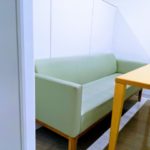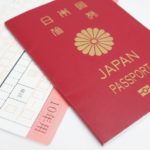Home visits during the examination of the naturalization application
After applying for naturalization, home visits and workplace visits may be conducted in some cases. Some people are concerned about home visits by Legal Affairs Bureau officials and want to know why home visits are conducted. In this topic, you will learn more about home visits for naturalization applications, the timing of home visits, and exceptions for special permanent residents.
About home visits during the review of naturalization applications
Officials from the Legal Affairs Bureau may visit the applicant at home after he/she submits a naturalization application to check whether there are any problems with his/her conduct in Japan.
During the home visit, they will check whether the applicant really lives in the place indicated in the application and whether the living conditions indicated are true.
For example, you state that a family member is living with you, but the investigation may reveal that you are actually living alone.
In addition, officials verify the content of the naturalization application and confirm the affiliation of the workplace and school. They may want to verify which workplace you work at and which school you study at.
In some cases, they also interview neighbours to check if there are any problems with other residents and if the applicant has caused any nuisances.
Time of the home visit
Investigative methods can be public and confidential.
Home visits are usually scheduled at the same time as the interview. However, they may be scheduled on a different day.
The time of the home visits may vary depending on the Office of Legal Affairs staff. So make sure they can come to your home at any time.
Exception for special permanent residents
Special permanent residents are generally exempt from home visits and interviews with neighbors.
A special permanent resident is a residency status set forth in the “Special Law Concerning Immigration Control for Persons Who Have Lost Japanese Nationality Based on a Peace Treaty with Japan."
It refers to foreigners who came to Japan before the World War II and lived as Japanese citizens.
It is significant that many people are in these countries because many people have renounced their citizenship due to peace treaties in South Korea and Taiwan.
The “Alien Registration Certificate" has been abolished and now a “Special Permanent Residence Certificate" is issued instead.
Summary
After you apply for naturalization, officials from the Office of Legal Affairs may visit your home to make sure there are no behavioural problems. They may also check the contents of the naturalization application and the affiliation with your workplace and school.
The home visit is usually scheduled at the same time as the interview. However, it may also take place on a different day than the interview.
Special permanent residents are in principle exempt from home visits and interviews with neighbours.

















